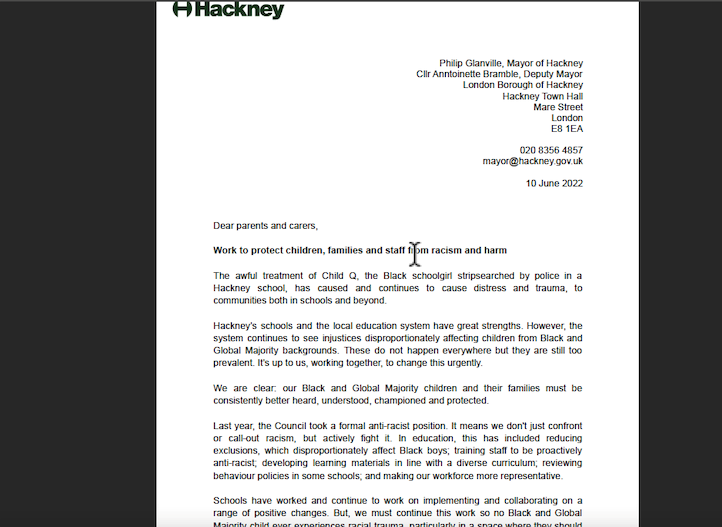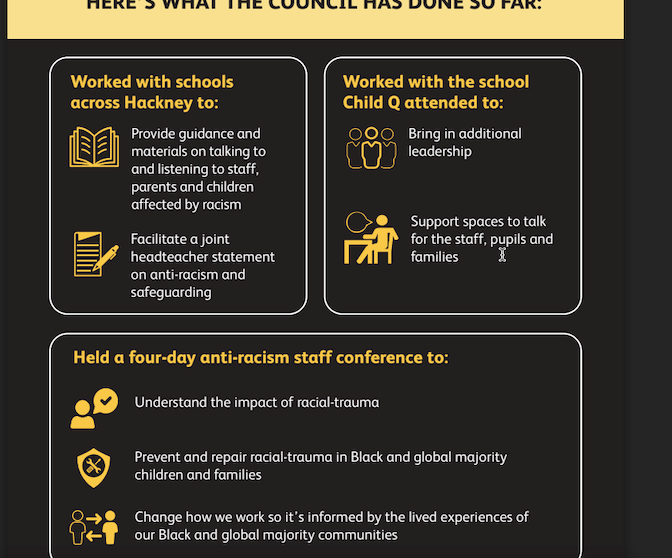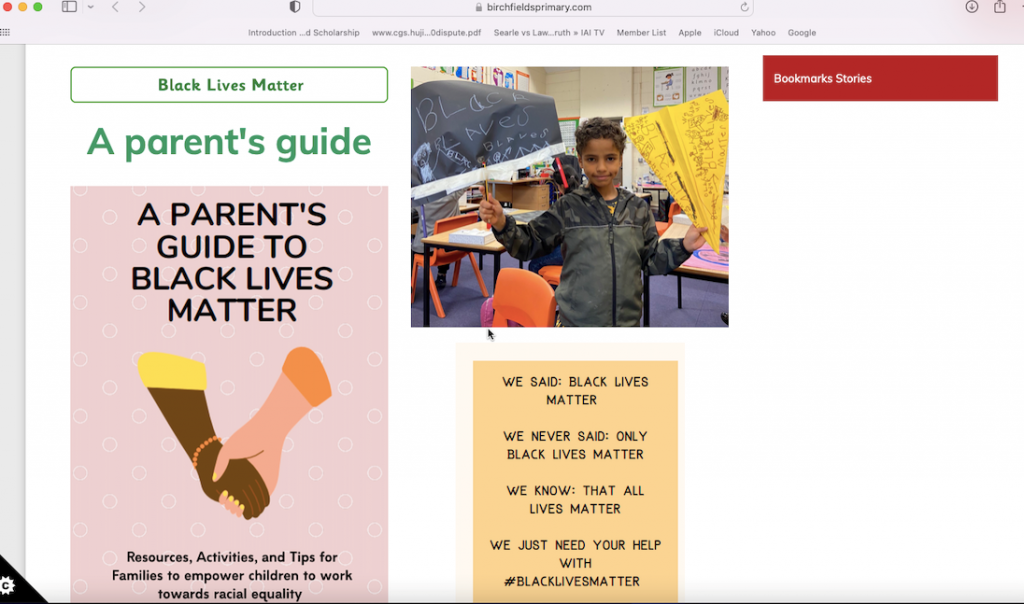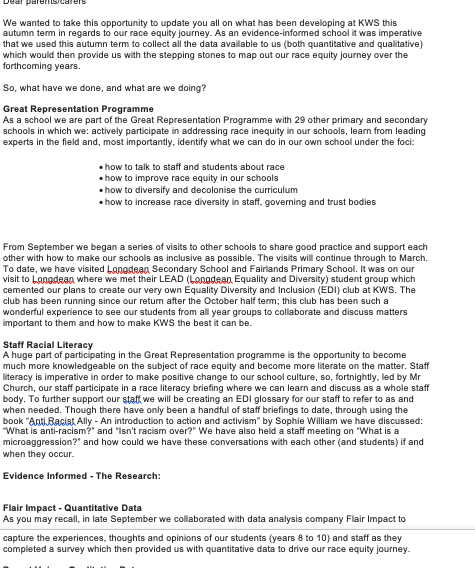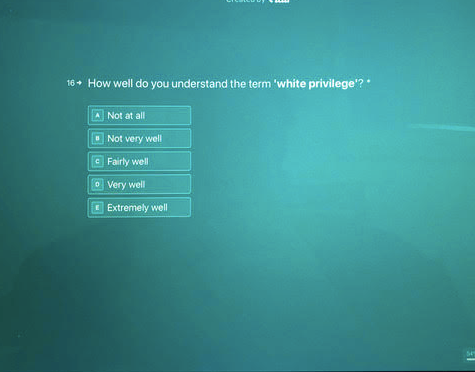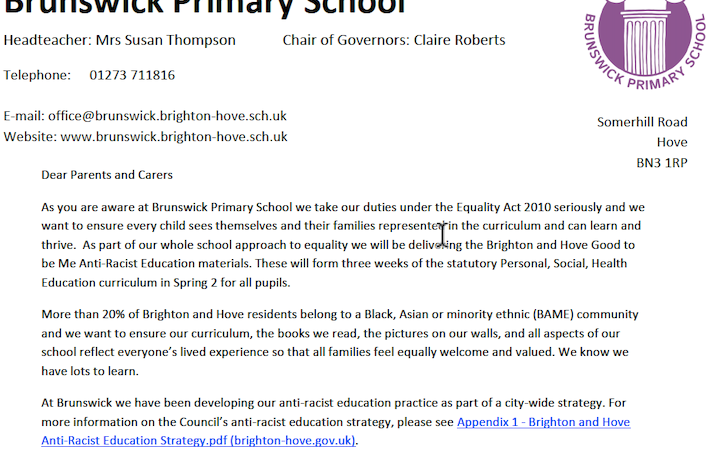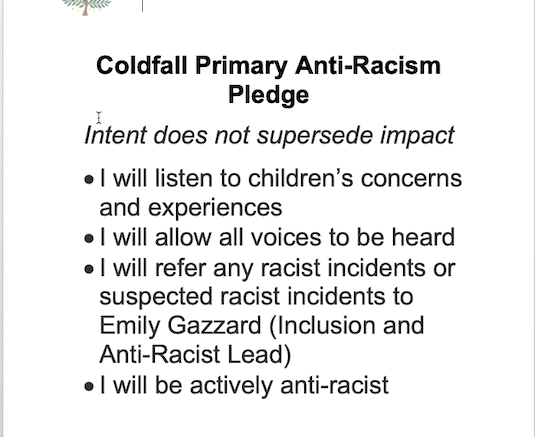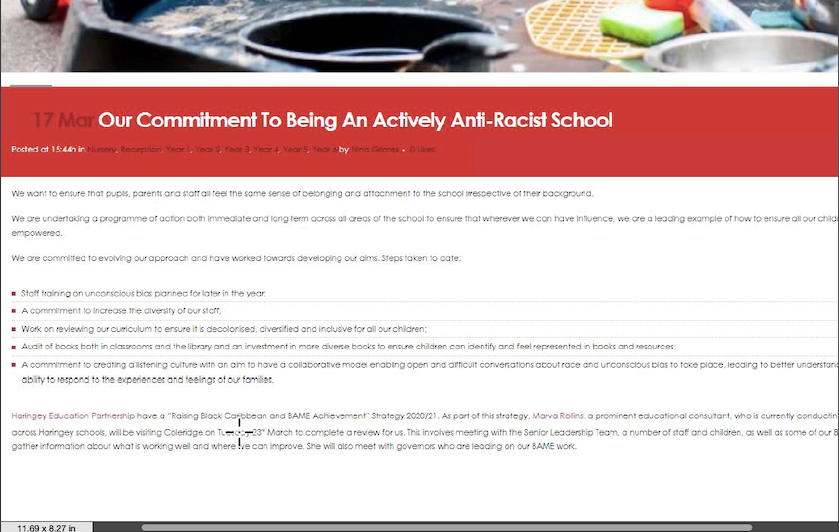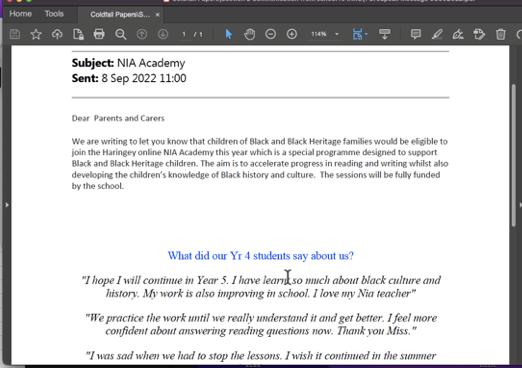Examples of Politically Partisan Content, Practices & Professional Development in Schools (part 1)
Below is a selection of recent examples that indicate that the education profession – from Exam Boards, educational publishers, Church of England Education Board, to local schools – are, wittingly or not, endorsing or promoting a minority-held, radical, narrative of British society, culture and history as systematically and institutionally racist. This is not the same as teaching contested ideas impartially: it is legitimising a radical ideology about race (rooted in Critical Race Theory) by delegitimising established, liberal ideas and practices about race (rooted in Enlightenment values and democratic politics). It is being introduced in schools through the following routes:
- Part 1: Partisan policies/ practices (examples 1 – 5)
- Part 2: Partisan Curriculum (examples 6 – 10)
- Part 3: Partisan professional development (examples 11 – 13)
- Part 4: Partisan professional associations (example 14 & 15)
Part 1: Partisan policies and practices
Example 1: Partisan practice
Last year, a mother sent us a copy of a letter from Hackney Council that her child’s school had sent to all parents, along with a leaflet outlining the Council’s actions in the wake of the Child Q incident. Terms like ‘racial trauma’ and ‘black and global majority’ are from a radical politics that is incompatible with educating children. It is also incompatible with good child development because it encourages constant suspicion of others and a victim mindset.
Example 2: Partisan practice
The inclusion of a guidance on Black Lives Matter, produced by a French company Yoopies (a digital home care platform), assumes that everyone agrees with all the ethical and political presuppositions contained in the guidance. But schools exist to educate the young, not change the values of adults. This guidance endorses a particular political view as the one adopted by the school – children from families who question or are critical of BLM are therefore automatically positioned as oppositional or outside of the school’s value system.
Example 3: Partisan practice
This extract is from Katharine Warrington secondary school to parents. Jargon such as ‘race equity journey’, ‘diversify and decolonise’ contradicts the school website’s landing page where a commitment to ‘traditional values with an innovative approach’ is announced. ‘Race equity’ is not a traditional value, it is a recent political concept from Critical Social Justice ideology.
Note the school is hiring the services of Flair Impact, which is described as ‘a data analysis company’. FLAIR charge schools to help them plan their EDI journeys and provide ongoing data monitoring. Below is a screenshot from a pupil online training lesson at a school using the services of FLAIR.
Example 4: Partisan practice
A parent sent in this letter from a primary school in Hove. Not all ethnic minorities think or feel the same way, and not all might want the school to deliberately ‘represent’ them because while it affirms ethnic identity, it devalues a more universal identity all children could share at school – that of a pupil identity, irrespective of social and physical differences.
Example 5: Partisan practice
Coldfall Primary School has enlisted the services of an EDI social enterprise organisation called ARISE. They have introduced an ‘active anti-racist statement’ for staff and pupils, shown below. The third item is a school letter offering funding for extra support for children from Black and Black Heritage families only. The parent has been in communication with the school for a while, but as yet it is unclear whether the school is acting illegally in positively discriminating, or acting within the definition of positive action, which is legal under section 158 of the Equality Act.
